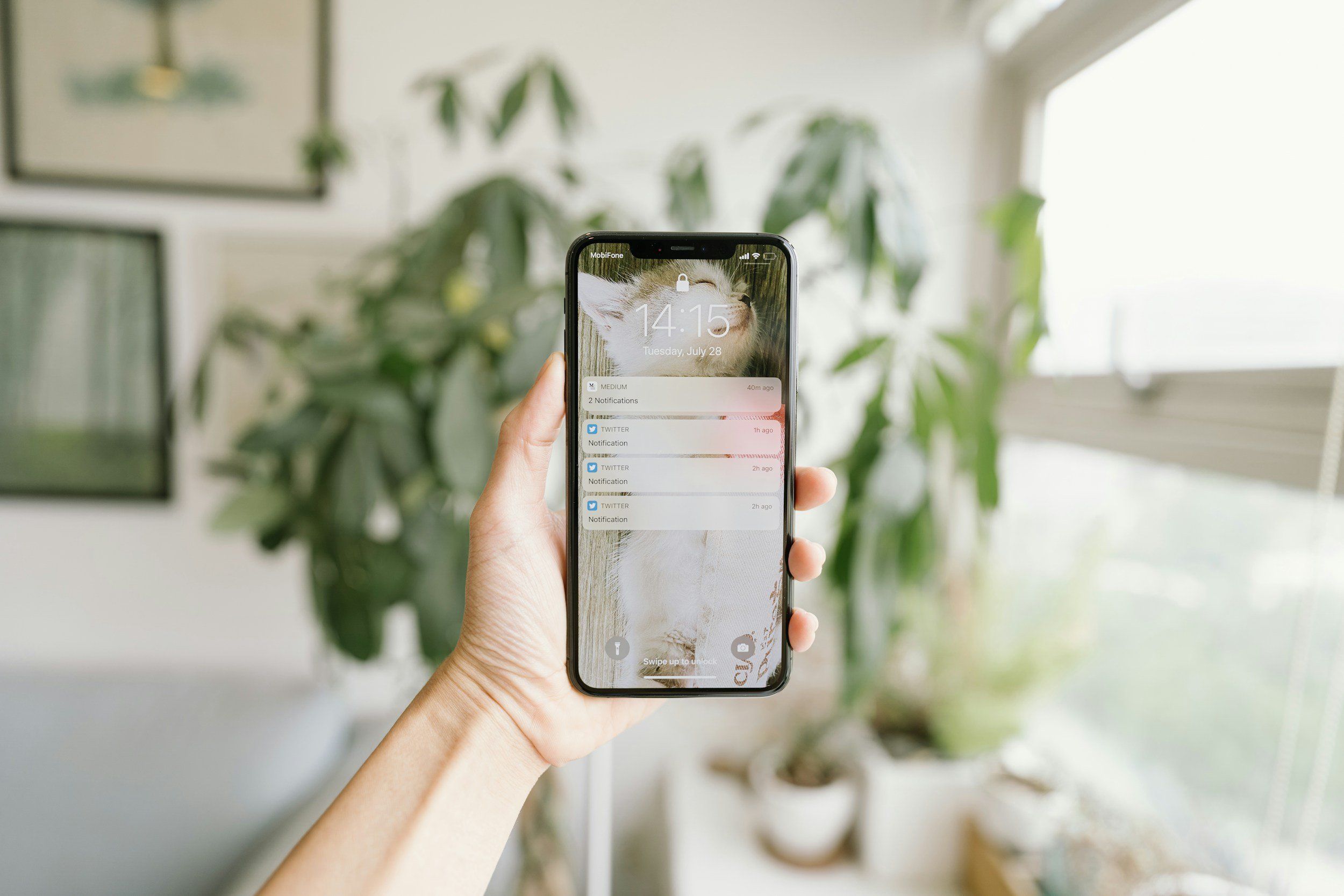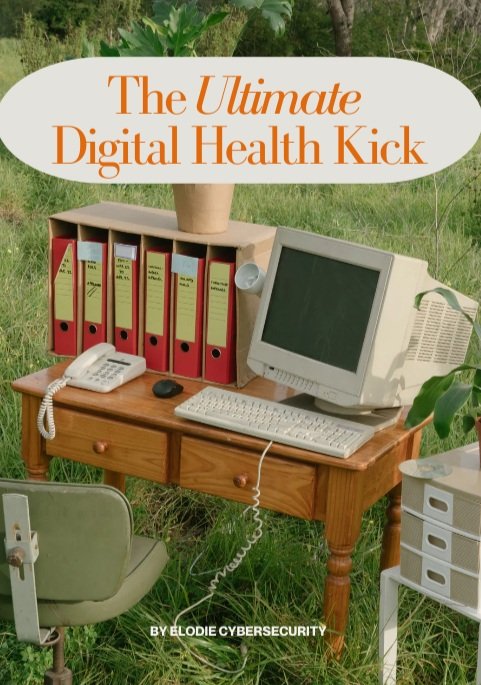The Spring Clean Series - How to Declutter your Devices
The sun is beginning to peak through, the trees are getting greener and dare I say the lambs almost lambing? Spring is practically here and it’s my favourite time of year.
With the winter blues lifting, and the feeling of potential that sunny mornings bring, it’s the perfect time to get your home, wardrobe and devices in order.
Whether you want a smoother transition into Q2 for your business, are becoming overwhelmed with organising your photo album or are beginning to feel the 4 digit number of unread emails at the pit of your stomach - in Part 2 of our Spring Clean series, we’ll show you how to declutter your devices, create a sunnier social media and boost your security.
From Digital Drain to Digital Gain
Last week in Part 1, we discussed the importance of reclaiming your physical and mental health from our digital world.
Despite the hits to our creativity and mental and physical wellbeing, our devices aren't inherently harmful. When used intentionally, they can enhance our lives and boost productivity alongside creating and maintaining connections and opening up endless possibilities.
The key lies in transforming our relationship with technology from passive consumption to active utilisation.
With that in mind, here is your guide on making your devices work for you, not against you.
1. Declutter your Device
Uninstall unused apps
Review all apps and remove those you haven't used in the last 3 months. This frees up storage space and reduces clutter on your home screen.Organise apps into folders
Create logical groupings like "Productivity," "Social," "Finance," and "Entertainment" to make apps easier to find and reduce visual overwhelm.Clear cache and unnecessary files
Remove temporary files, downloads, and cached data that accumulate over time. This improves device performance and storage efficiency.Update software and security settings
Ensure all apps and system software are up-to-date to maintain security and optimal performance. Now’s a great time to review privacy settings across all applications too!
2. Review your Notifications
Audit app notifications
Review which apps truly need to alert you immediately. Consider if each notification adds value or creates unnecessary interruptions and cull appropriately.Enable "Do Not Disturb" during focus times
Set specific hours for deep work or rest where notifications are on mute. This helps maintain concentration and reduces brain burnout.Create custom notification schedules
Set up different notification profiles for workdays versus weekends, or morning versus evening to match your daily routine.Disable non-essential alerts
Turn off notifications for apps that don't require immediate attention, like games, shopping apps, or social media updates.
3. Organise your Digital Space
Clean up your email inboxes
Implement a system like "inbox zero" or folder categorisation. Unsubscribe from unnecessary newsletters and create filters for automatic sorting.Organise digital files and documents
Create a logical folder structure, use consistent naming, and regularly sort files into appropriate locations.Back up important data
Establish regular backup routines using cloud storage or external drives to protect essential files, data and memories.Delete or archive old content
Remove or archive outdated documents, old screenshots, and duplicate files to maintain a clean, efficient space.
4. Social Media Reset
Unfollow accounts that don't add value
Review your following list and keep only accounts that inspire, inform, or genuinely connect with you.Set specific times for social media use
Designate certain periods for social media checking instead of constant browsing. This helps maintain focus and reduces mindless scrolling.Create separate accounts for personal and professional use
Maintain boundaries between work and personal life by separating your social media presence accordingly. Consider using separate phones if you can!Use screen time tracking apps
Monitor your social media usage patterns and set limits using built-in tools or third-party apps to maintain healthy boundaries.
5. Security Boost
Enable two-factor authentication (2FA) and Update all passwords
Add an extra layer of security to your accounts by requiring both a password and a second form of verification, like a code sent to your phone.Check app permissions
Review and revoke unnecessary permissions granted to apps, such as location access, camera, or microphone usage when not essential for the app's core function.Regular device backups
As above, schedule automatic backups of your devices to cloud storage or external drives to protect important data, photos, and documents from loss due to hardware failure or cyber incidents. Knowing you have your photos stored elsewhere is such a relief. Having a print out session is well worth it too.Keep software and apps current
Regularly update all applications and operating systems on your devices. Updates often include important security patches, performance improvements, and new features that can enhance your digital experience and protect against vulnerabilities.
I hate to use too much wellness waffle but I hope the above makes your devices feel fresher and a nicer place to be. If you didn’t catch it last week we focuses on the physical and mental effects device usage can bring and what you can do to mitigate them. In Part 3 of the series, we’ll discuss how to create healthy digital habits.
The Ultimate Digital Health Kick
If you’re enjoying it and want to learn more, why not download your very own guide to the Ultimate Digital Health Kick.
We cover everything in the series and more, alongside helpful tools and templates to make real changes in just 30 days.
Download via the button below.
Don’t forget to sign up to our newsletter to stay in the know of more cybersecurity and digital wellness tips.








The final installment in our Spring Clean Series on how to transform your digital wellbeing